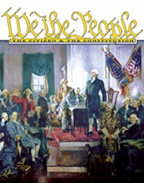 By now, I hope that it is apparent that I am actively searching for a new job. In April, due to organizational restructuring, I left United Cerebral Palsy. I have been doing a lot of thinking and everyday, I have been efficiently using my time to search for a new job/career through sites like BradTraverse.com, Jobs That Are Left, and following the Idealist.org DC Nonprofit Jobs, Washington Post Nonprofit Jobs, and Careerealism Twitter streams. LinkedIn and e-mail listserves are also a part of my daily regimen. It is my hope to find something in the nonprofit or government sectors. A common interview question that I have come across in my search is “why the nonprofit sector?”
By now, I hope that it is apparent that I am actively searching for a new job. In April, due to organizational restructuring, I left United Cerebral Palsy. I have been doing a lot of thinking and everyday, I have been efficiently using my time to search for a new job/career through sites like BradTraverse.com, Jobs That Are Left, and following the Idealist.org DC Nonprofit Jobs, Washington Post Nonprofit Jobs, and Careerealism Twitter streams. LinkedIn and e-mail listserves are also a part of my daily regimen. It is my hope to find something in the nonprofit or government sectors. A common interview question that I have come across in my search is “why the nonprofit sector?”
The nonprofit sector embodies much more than a singular bottom-line that exists in a profit driven business. Also, there is a common concern about making an impact in society. Sure, there are needs that for-profits deliver as well, but as I mentioned previously, referencing Burt Weisbrod’s heterogeneity public goods theory, the nonprofit sector fills the gap in what the government and the for-profit sectors fail to provide in solving a problem facing society.
 I have an intrinsic motivation to serve society that stems from an experience I had as a senior in high school while enrolled in the “We The People” program. This program is run by the Center for Civic Education. In fact, my dream job is to work for the Center for Civic Education to give back to an organization that gave me so much. Further, when I was applying to college, I was applying as a biochemical engineering major. Upon arriving on campus in the fall of 1999, my experience with the “We the People” program had an impact on my decision to change my major to Political Science. It was also a factor in my decision to pursue a Masters degree in Public Administration. I fell in love with the idea and concept of civic mindedness. “We the People” changed my entire outlook on life and it continues to influence many decisions I tend to make in life.
I have an intrinsic motivation to serve society that stems from an experience I had as a senior in high school while enrolled in the “We The People” program. This program is run by the Center for Civic Education. In fact, my dream job is to work for the Center for Civic Education to give back to an organization that gave me so much. Further, when I was applying to college, I was applying as a biochemical engineering major. Upon arriving on campus in the fall of 1999, my experience with the “We the People” program had an impact on my decision to change my major to Political Science. It was also a factor in my decision to pursue a Masters degree in Public Administration. I fell in love with the idea and concept of civic mindedness. “We the People” changed my entire outlook on life and it continues to influence many decisions I tend to make in life.
The “We the People” program is a class constructed as a competitive mock-Congressional hearing. Teams are broken up into six different units and given a question in advance. The teams each have an allotment of time to answer this question as well as time for cross examination. The answers are given orally and scores are given based on the number of the team that answers and the quality of the answers. There is a regional, state and a nationwide final competition. My team represented the State of Nevada in 1999 at the “We the People” finals. It was an exhilarating experience and one that I will never forget. Not only did this class instruct to memorize facts like many others, but it also instilled the concept of application to the modern day context (for me, one event that year was the Columbine High School shootings in Colorado). We were taught to think in a new way, to apply concepts and philosophies to actual current events.
Needless to say, “We the People” changed my life and gave me a sense of being that I had never known. Since then, my life path has been seeking out a way to give back to society, to impact social change, grow social capital and make a difference in something greater than myself. So why the nonprofit sector? In short, to give back and make a difference.


 By now, I hope that it is apparent that I am actively searching for a new job. In April, due to organizational restructuring, I left United Cerebral Palsy. I have been doing a lot of thinking and everyday, I have been efficiently using my time to search for a new job/career through sites like
By now, I hope that it is apparent that I am actively searching for a new job. In April, due to organizational restructuring, I left United Cerebral Palsy. I have been doing a lot of thinking and everyday, I have been efficiently using my time to search for a new job/career through sites like 








